RECENT ARTICLES
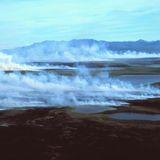
Climate Change Linked to Increase in Arctic Lightning Strikes
Lightning strikes have become more common in the Arctic over the last decade, and they’re expected to become ever more frequent over the next century. Two new studies present evidence that the phenomenon is linked to climate change, and that the wildfires sparked by Arctic lightning will accelerate climate change even more.A study published last month in the journal shows Arctic lightning strikes have become 300 percent more common in the last 11 years. The Arctic’s climate is warming twice as fast as the rest of the world, and its warmer air provides the right conditions for lightning to...…Lightning strikes have become more common in the Arctic over the last decade, and they’re expected to become ever more frequent over the next century. Two new studies present evidence that the phenomenon is linked to climate change, and that the wildfires sparked by Arctic lightning will accelerate climate change even more.A study published last month in the journal shows Arctic lightning strikes have become 300 percent more common in the last 11 years. The Arctic’s climate is warming twice as fast as the rest of the world, and its warmer air provides the right conditions for lightning to...WW…

How Space Travel Shrank Astronaut Scott Kelly's Heart
While astronaut Scott Kelly spent 340 days on the International Space Station, the mass of his heart shrank by about 27 percent, according to new research in the journal .That might sound alarming, but it’s a reflection of how adaptable the human heart is, explains study author Benjamin Levine, a professor of internal medicine at the University of Texas Southwestern Medical Center and Texas Health Presbyterian Dallas, to the ’ Kenneth Chang. On Earth, the heart has to pump blood hard enough to move it upward while gravity pulls it down. But in the weightless conditions of orbit, gravity is...…While astronaut Scott Kelly spent 340 days on the International Space Station, the mass of his heart shrank by about 27 percent, according to new research in the journal .That might sound alarming, but it’s a reflection of how adaptable the human heart is, explains study author Benjamin Levine, a professor of internal medicine at the University of Texas Southwestern Medical Center and Texas Health Presbyterian Dallas, to the ’ Kenneth Chang. On Earth, the heart has to pump blood hard enough to move it upward while gravity pulls it down. But in the weightless conditions of orbit, gravity is...WW…
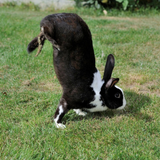
Thanks to a Genetic Mutation, These French Rabbits Prefer Handstands to Bunny Hops
Sauteur d’Alfort is French for Alfort’s jumpers, but rabbits bearing the name don’t hop at all. When most rabbits would jump away—pushing off the ground with both back legs to propel themselves forward—sauteur d’Alfort bunnies instead throw their backends up over their heads, balance on their front paws and scurry forward.The French veterinarian who first witnessed this behavior in 1935 said the rabbits looked like human acrobats walking on their hands, reports Cristophe-Cécil Garnier for .Now, researchers have identified the specific genetic mutation that leads to the bunnies’ particular...…Sauteur d’Alfort is French for Alfort’s jumpers, but rabbits bearing the name don’t hop at all. When most rabbits would jump away—pushing off the ground with both back legs to propel themselves forward—sauteur d’Alfort bunnies instead throw their backends up over their heads, balance on their front paws and scurry forward.The French veterinarian who first witnessed this behavior in 1935 said the rabbits looked like human acrobats walking on their hands, reports Cristophe-Cécil Garnier for .Now, researchers have identified the specific genetic mutation that leads to the bunnies’ particular...WW…
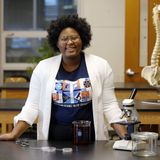
This High Schooler Invented Color-Changing Sutures to Detect Infection
Solutions to today's biggest challengesMade Possible Through the Support ofDasia Taylor has juiced about three dozen beets in the last 18 months. The root vegetables, she’s found, provide the perfect dye for her invention: suture thread that changes color, from bright red to dark purple, when a surgical wound becomes infected.The 17-year-old student at Iowa City West High School in Iowa City, Iowa, began working on the project in October 2019, after her chemistry teacher shared information about state-wide science fairs with the class. As she developed her sutures, she nabbed awards at ,...…Solutions to today's biggest challengesMade Possible Through the Support ofDasia Taylor has juiced about three dozen beets in the last 18 months. The root vegetables, she’s found, provide the perfect dye for her invention: suture thread that changes color, from bright red to dark purple, when a surgical wound becomes infected.The 17-year-old student at Iowa City West High School in Iowa City, Iowa, began working on the project in October 2019, after her chemistry teacher shared information about state-wide science fairs with the class. As she developed her sutures, she nabbed awards at ,...WW…
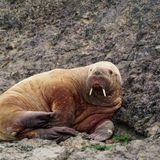
How Did This Walrus Get to Wales?
On March 20, the in Wales responded to an unusual call. For the first time in its 200 year history, they were asked to check up on an Atlantic walrus that had stopped on the coast of Pembrokeshire to rest, Bruce Sinclair reports for the .Walruses aren’t native to the British Isles, so this brief visitor quickly became a local celebrity, with residents suggesting names like , . Photographs of the walrus suggest that the same animal swam to southern Wales from Ireland in about six days, and experts wonder if it’s also the same walrus that was spotted in in mid-February.The RSPCA and the Welsh...…On March 20, the in Wales responded to an unusual call. For the first time in its 200 year history, they were asked to check up on an Atlantic walrus that had stopped on the coast of Pembrokeshire to rest, Bruce Sinclair reports for the .Walruses aren’t native to the British Isles, so this brief visitor quickly became a local celebrity, with residents suggesting names like , . Photographs of the walrus suggest that the same animal swam to southern Wales from Ireland in about six days, and experts wonder if it’s also the same walrus that was spotted in in mid-February.The RSPCA and the Welsh...WW…
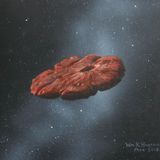
New Theory Suggests 'Oumuamua Is a Nitrogen Ice Pancake
When astronomers first detected in , it was shooting through our solar system so fast, it could only have originated from a faraway star. The strange object is long gone, but astronomers are still working to solve the mysteries it raised.Two studies published on March 16 in present the case that the interstellar traveler might be a large chunk of nitrogen ice that chipped off of a Pluto-like exoplanet millions of years ago, during the formation of a solar system far, far away. The nitrogen iceberg theory is the second natural explanation for ‘Oumuamua’s behavior, following research that...…When astronomers first detected in , it was shooting through our solar system so fast, it could only have originated from a faraway star. The strange object is long gone, but astronomers are still working to solve the mysteries it raised.Two studies published on March 16 in present the case that the interstellar traveler might be a large chunk of nitrogen ice that chipped off of a Pluto-like exoplanet millions of years ago, during the formation of a solar system far, far away. The nitrogen iceberg theory is the second natural explanation for ‘Oumuamua’s behavior, following research that...WW…
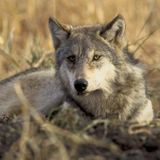
Hunters Killed 82% More Wolves Than Quota Allowed in Wisconsin
Hunters and trappers participating in Wisconsin’s fourth wolf hunting season killed almost 100 more animals than was allowed under the state’s quota, Paul A. Smith reports for the .The state’s Department of Natural Resources issued 1,486 tags to hunters with a quota of 119 wolves. Hunting was closed at 3 p.m. on Wednesday, and hunters had 24 hours to report their kills. The final count: 216 wolves, according to data released by Wisconsin DNR on Thursday.“It’s easy at this point in the game to say, yeah, maybe we should have closed it a little bit sooner,” said Eric Lobner, DNR Wildlife...…Hunters and trappers participating in Wisconsin’s fourth wolf hunting season killed almost 100 more animals than was allowed under the state’s quota, Paul A. Smith reports for the .The state’s Department of Natural Resources issued 1,486 tags to hunters with a quota of 119 wolves. Hunting was closed at 3 p.m. on Wednesday, and hunters had 24 hours to report their kills. The final count: 216 wolves, according to data released by Wisconsin DNR on Thursday.“It’s easy at this point in the game to say, yeah, maybe we should have closed it a little bit sooner,” said Eric Lobner, DNR Wildlife...WW…
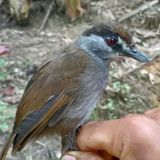
Long-Lost Babbler Bird Documented in Borneo for the First Time in Over 170 Years
When Muhammad Suranto and Muhammad Rizky Fauzan trekked into the South Kalimantan rainforest in Borneo, they sometimes spotted a black and brown bird darting between the trees. They couldn’t identify it, so they captured one of the birds and sent photos of it to a local birdwatching group, BW Galeatus.One member of the group, Joko Said Trisiyanto, matched the bird’s markings to the black-browed babbler, which was listed in his guidebook as possibly extinct. He sent the photos to ornithologist Panji Gusti Akbar, who passed the photos along to several other experts, Rachel Nuwer reports for...…When Muhammad Suranto and Muhammad Rizky Fauzan trekked into the South Kalimantan rainforest in Borneo, they sometimes spotted a black and brown bird darting between the trees. They couldn’t identify it, so they captured one of the birds and sent photos of it to a local birdwatching group, BW Galeatus.One member of the group, Joko Said Trisiyanto, matched the bird’s markings to the black-browed babbler, which was listed in his guidebook as possibly extinct. He sent the photos to ornithologist Panji Gusti Akbar, who passed the photos along to several other experts, Rachel Nuwer reports for...WW…
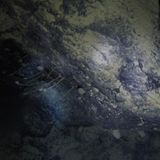
Mysterious Sponges Live on a Boulder Under 3,000 Feet of Antarctic Ice
“It’s like, bloody hell!” says BAS geologist James Smith to Wired. “It's just one big boulder in the middle of a relatively flat seafloor. It’s not as if the seafloor is littered with these things.”Unfortunate placement for a geologist turned out to be a stroke of luck for BAS biologist Huw Griffiths, who reviewed the footage back in the United Kingdom. Sponges and other sedentary life forms, possibly barnacles or tube warms, studded the surface of the boulder. A study describing the discovery was published on Monday in the journal .“It’s slightly bonkers,” says Griffiths, to Ian Sample at...…“It’s like, bloody hell!” says BAS geologist James Smith to Wired. “It's just one big boulder in the middle of a relatively flat seafloor. It’s not as if the seafloor is littered with these things.”Unfortunate placement for a geologist turned out to be a stroke of luck for BAS biologist Huw Griffiths, who reviewed the footage back in the United Kingdom. Sponges and other sedentary life forms, possibly barnacles or tube warms, studded the surface of the boulder. A study describing the discovery was published on Monday in the journal .“It’s slightly bonkers,” says Griffiths, to Ian Sample at...WW…
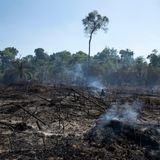
Humans Have Altered 97 Percent of Earth's Land Through Habitat and Species Loss
A study published on April 15 in the journal presents evidence that only about three percent of Earth’s land ecosystems remain untouched by human activity.The analysis focuses on large swaths of land, about 3,860 square miles each, to account for the amount of habitat required by wide-ranging species. The study takes into account three measures of ecological integrity: habitat intactness, which is how human activity has affected the land; faunal intactness, which looks at species loss; and functional intactness, which focuses on species loss among animals that contribute to the health of an...…A study published on April 15 in the journal presents evidence that only about three percent of Earth’s land ecosystems remain untouched by human activity.The analysis focuses on large swaths of land, about 3,860 square miles each, to account for the amount of habitat required by wide-ranging species. The study takes into account three measures of ecological integrity: habitat intactness, which is how human activity has affected the land; faunal intactness, which looks at species loss; and functional intactness, which focuses on species loss among animals that contribute to the health of an...WW…